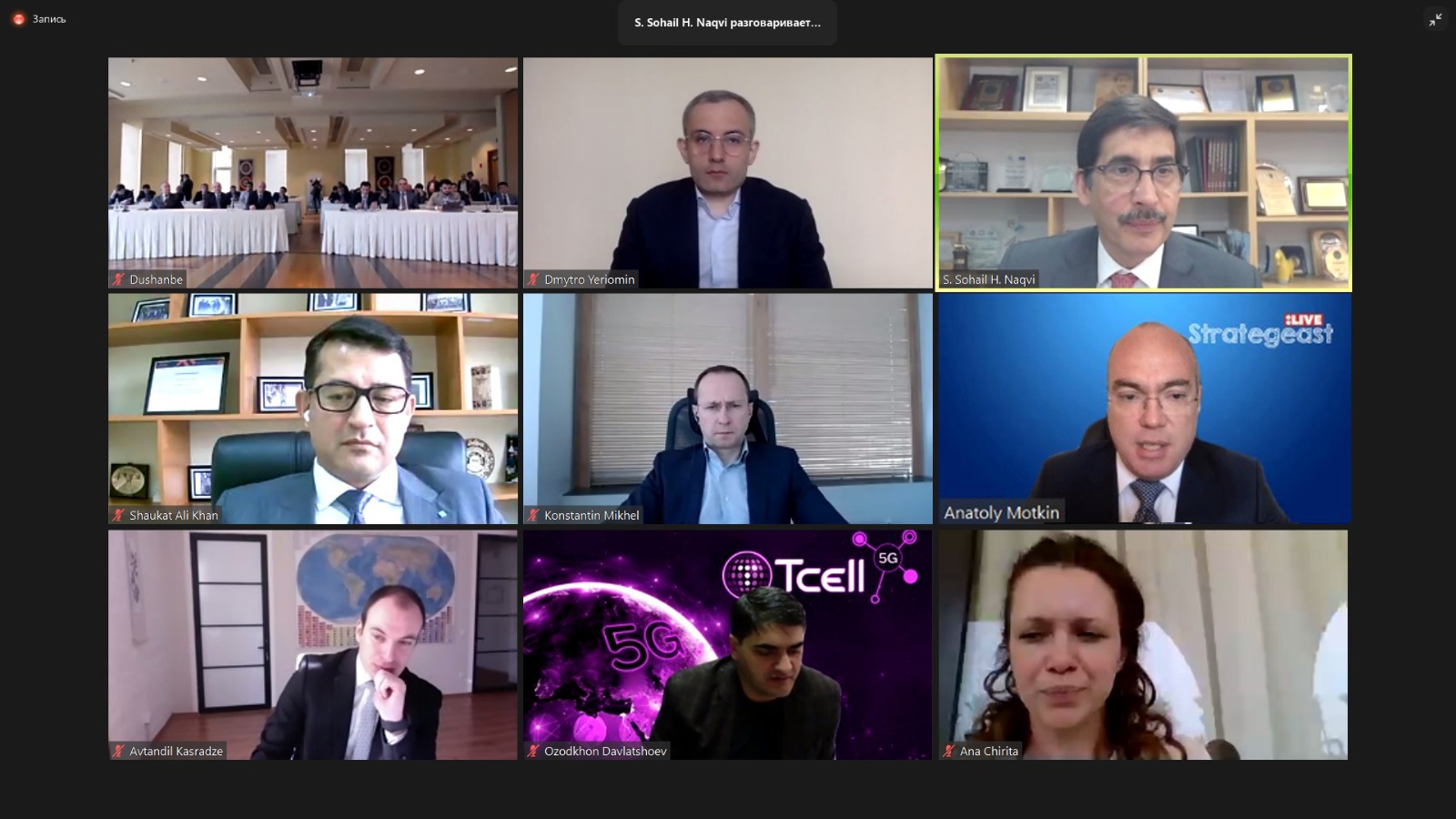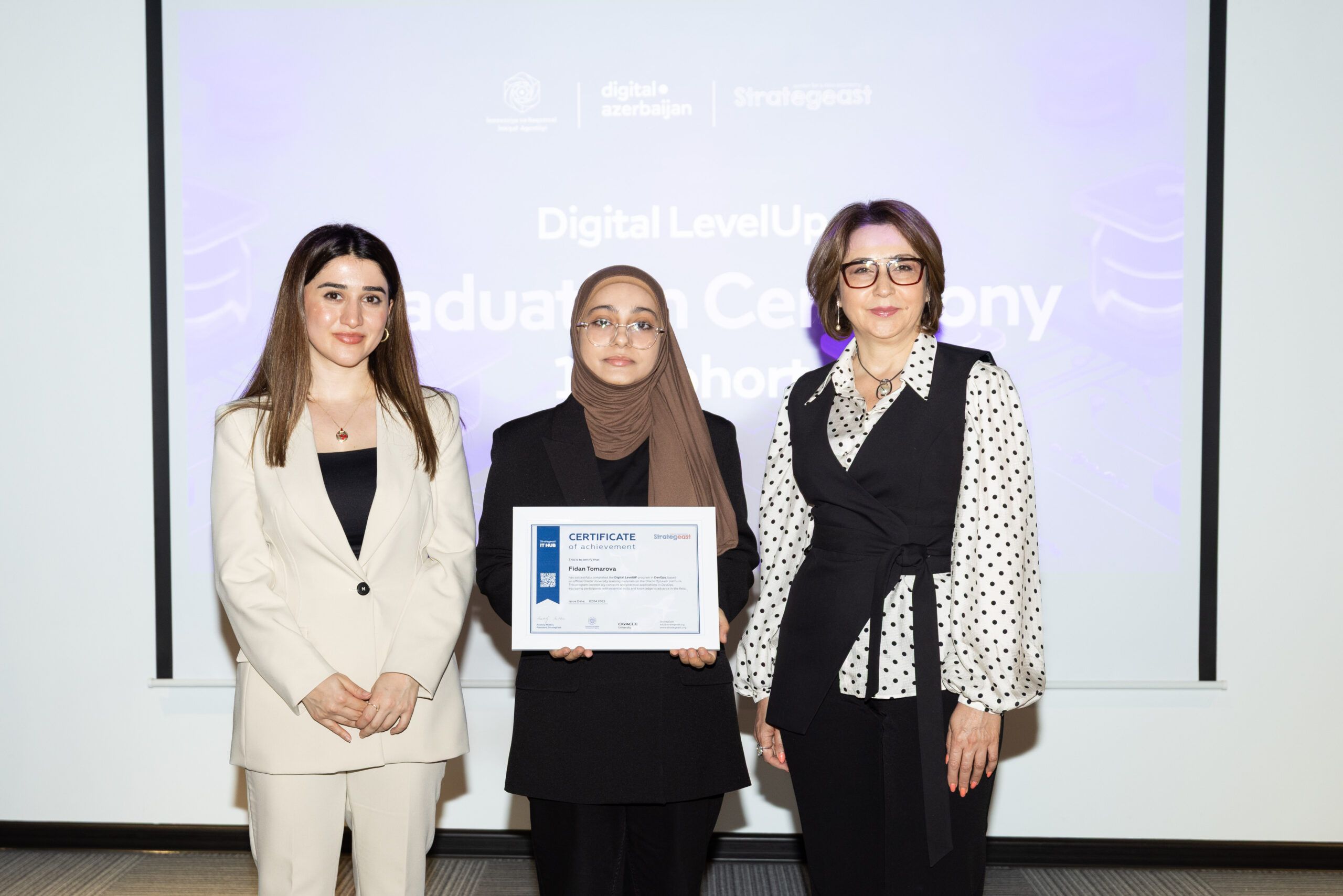Together with the University of Central Asia and the Ministry of Industry and New Technologies of the Republic of Tajikistan, StrategEast co-organized the panel discussion for the ministries and committees of Tajikistan, public and private organizations including representatives of international development organizations and financial institutions to discuss and explore the Eurasian experience in the creation of High Technology Parks. During the panel discussion, the experts from Eurasia shared their experiences on the important factors to be considered while creating a High-Tech Park, including the required basic infrastructures, competence, technology, and legal framework. The event was held in a hybrid format with the offline participation of the audience in Dushanbe and international audience joining online.
Farhod Bilolzoda, Deputy Minister of Industry and New Technologies, Republic of Tajikistan addressed the panel with a welcoming speech on behalf of the Government of Tajikistan.
Prof. Dr. S. Sohail H. Naqvi, Rector of the University of Central Asia in his opening remarks spoke about the integration of high technologies into such a traditional industry for Central Asia as agriculture and expressed confidence in the possibility of IT development in Tajikistan.
Anatoly Motkin, President of StrategEast center for a new economy in opening remarks spoke about the successful case of IT industry development in Georgia, facilitated by StrategEast. Mr. Motkin assured representatives of the Tajik authorities and international development organizations that this experience could be fully replicated in Tajikistan.
The panel participants made the presentations based on their practical experience and interacted with the audience, answering the relevant questions.
Konstantin Mikhel, VMP Vlasova, Mikhel and Partners Law office, responsible for IT legislation development – High Technologies Park (Belarus). Topic: How a new industry was built in Belarus, with an average salary of $2,200, exporting products worth $2 billion a year.
Dmytro Yeriomin, Member of the Supervisory Board of UNIT.City (Ukraine). Topic: How to build a high-tech park with funds from private investors.
Oleksandr Bornyakov, Deputy Minister at the Ministry of Digital Transformation of Ukraine, Diia City Project (Ukraine). Topic: Creation of a fully virtual High Tech Park based on the model of a special legal regime.
Avtandil Kasradze, Chairman at Georgia’s Innovation and Technology Agency, Tech Park (Georgia). Topic: Creation of the IT industry in accordance with the model of public-private partnership.
Speaking at the panel, Ozodkhon Davlatshoev, Director General of Tcell, noted that Tajikistan is a mountainous country, and for the uniform development of the IT industry throughout the territory, it is important to provide all residents with access to high-speed Internet.
Farhod Bilolzoda, Deputy Minister of Industry and New Technologies, Republic of Tajikistan and Shaukat Ali Khan, Chief Information Officer at the University of Central Asia moderated the discussion.
Click here for the recording of the discussion with Russian translation.
Click here for the previous StrategEast.Live online discussions.
The University of Central Asia was founded in 2000 as a private, not-for-profit, a secular university under an International Treaty signed by the Presidents of Tajikistan, Kyrgyzstan and Kazakhstan, and His Highness the Aga Khan; ratified by their respective Parliaments and registered with the United Nations. The University is a unique institution of higher education focused on the development of mountain societies, with its School of Arts and Sciences campuses in Naryn (Kyrgyzstan) and Khorog (Tajikistan), designed by award-winning architect, Arata Isozaki. The Tekeli campus in Kazakhstan is currently in the planning phase. UCA’s Graduate School of Development has three research institutes, and its School of Professional and Continuing Education has graduated over 150,000 learners since 2006.
The Ministry of Industry and New Technologies is the central entity of the executive body. Its Charter was approved by a decree of the Government of Tajikistan on March 3, 2014. According to the Charter, the Ministry implements its activities in the direction of public policy, regulation of industry, fuel complex and development of new technologies, including the defense industry, machinery, chemicals, minerals, coal, building materials, light industry and food. Based on this, implementing the leadership, coordination and control of the industrial plants and factories, regardless of ownership, are imposed on the Ministry of Industry and New Technologies. Within this framework of authority, the Ministry implements international collaboration for the development of various industrial sectors and signs a memorandum of understandings.




